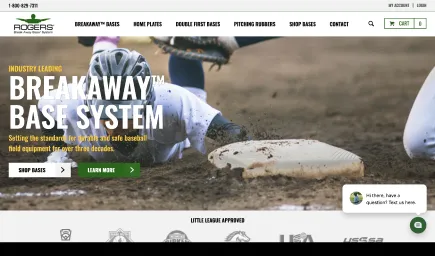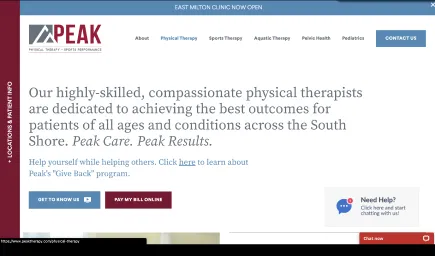Account Specialist

An account specialist is a key member of the Red Shark Digital team. They are responsible for working with clients and understanding their business goals in order to develop and execute effective digital marketing strategies. The specialist will collaborate with other members of the team to deliver the best possible solutions to clients.
At Red Shark Digital, the focus is on delivering the highest quality digital marketing solutions to clients. The account specialist will be expected to stay up-to-date with the latest trends and techniques in the industry, and to develop new ideas and strategies that can help clients succeed.
The role of the account specialist is to be the main point of contact for clients. They will work closely with clients to understand their needs and goals, and to develop marketing strategies that are tailored to those needs. This will involve conducting research, analyzing data, and developing plans that can help clients reach their target audience and achieve their business objectives.
The account specialist will also work closely with other members of the Red Shark Digital team, including designers, developers, and content creators. They will collaborate on projects to ensure that the solutions developed are effective and meet the needs of the client.
Overall, the account specialist is a key player in the success of Red Shark Digital and its clients. They are responsible for developing and executing digital marketing strategies that can help clients achieve their business goals, and for providing excellent customer service throughout the process.
Account Specialist
Frequently Asked Questions
What is inbound marketing ROI? Inbound marketing ROI is the return on investment that a business sees from its inbound marketing activities. This can be measured in a number of ways, but ultimately, it comes down to how much revenue is generated from inbound marketing compared to what was spent on it. There are a number of factors that can affect inbound marketing ROI, such as the quality of the leads, the sales cycle, and the conversion rate. However, if done correctly, inbound marketing can be an extremely effective way to generate new business and grow a company. To calculate inbound marketing ROI, businesses need to track a number of key metrics, such as website traffic, leads, and customers. By understanding how these metrics change over time, businesses can get a good idea of how their inbound marketing is performing and how it is impacting their bottom line.
Inbound consulting is a type of consulting that helps businesses attract more customers and clients through inbound marketing techniques. These techniques include content marketing, search engine optimization (SEO), social media marketing, and lead generation. Inbound consultants work with businesses to create and execute inbound marketing plans that attract and convert leads into customers and clients. Inbound consulting is a relatively new field, but it is growing rapidly as more businesses realize the power of inbound marketing. If you are a consultant who is interested in helping businesses grow through inbound marketing, there are a few things you should know. First, inbound consulting is not the same as traditional marketing consulting. Inbound consultants focus on helping businesses attract and convert leads, rather than on traditional marketing activities like advertising and public relations. Second, inbound consultants need to be well-versed in inbound marketing techniques like SEO, content marketing, social media marketing, and lead generation. They should also be familiar with the inbound marketing software that is available to help businesses automate and scale their inbound marketing efforts. Third, inbound consultants should have a strong understanding of the buyer's journey and how inbound marketing can be used to attract, convert, and close leads. They should also be able to help businesses develop buyer personas and create targeted content that speaks to the needs of their ideal customers. If you are interested in becoming an inbound consultant, there are a few things you can do to get started. First, brush up on your inbound marketing knowledge by reading blogs, books, and articles on the topic. Second, get certified in inbound marketing by taking a course from a company like HubSpot. And third, start networking with other inbound consultants and businesses that could benefit from inbound marketing.
An inbound consultant is a professional who helps companies attract visitors, convert leads, and close customers. They do this through a variety of means, including SEO, content marketing, social media, and lead generation. Inbound consultants also help companies track their progress and optimize their conversion rates.
Inbound marketing is a marketing strategy that focuses on getting found by potential customers, rather than seeking them out. This is done through a variety of means, such as content marketing, search engine optimization (SEO), and social media. Once potential customers are engaged, the goal is to turn them into customers and eventually promoters of the company.
Inbound marketing has become increasingly popular in recent years as traditional outbound methods, such as print advertising and television commercials, has become less effective. With the rise of the internet, potential customers are now more likely to find companies themselves, through search engines or social media. This means that companies need to focus on getting found by potential customers, and then providing them with useful and relevant information that will lead to a sale.
Inbound marketing is often seen as a more cost-effective and efficient method than outbound marketing, as it allows companies to directly target their audience, rather than wasting money on ads that may not be seen by potential customers. Additionally, inbound marketing can lead to higher quality and a more loyal customer base, as customers that are actively seeking out your company are more likely to be interested in what you have to offer.
There are many factors to consider when determining what customer data is most valuable. Some factors include the type of data, how it is collected, and how it is used.
Type of Data:
Some data is more valuable than others. For example, data that is collected about customer behavior is generally more valuable than data that is simply collected about customer demographics.
How It Is Collected:
The manner in which data is collected can also affect its value. Data that is collected passively (such as through cookies) is generally more valuable than data that is collected actively (such as through surveys).
How It Is Used:
The way in which data is used can also affect its value. Data that is used to personalize the customer experience is generally more valuable than data that is used for marketing or research purposes.
There are four main types of customer data:
1. Contact data: This includes customer names, addresses, phone numbers, and email addresses.
2. Demographic data: This is information about customer age, gender, income, education, and occupation.
3. Psychographic data: This is information about customer values, attitudes, and lifestyles.
4. Behavioral data: This is information about customer purchasing habits, website interactions, and other online and offline activities.
This data can be used to segment customers, target marketing messages, and personalize the customer experience. When used effectively, it can be a powerful tool to improve the bottom line.
There are four key tenets to a data-first strategy:
1. Collect data from as many sources as possible: This data can come from surveys, customer feedback, social media, web analytics, and more. The more data you have, the better able you are to make informed decisions about your marketing efforts.
2. Use data to segment your audience: Data can help you segment your audience into smaller, more manageable groups. This segmentation can be based on factors like demographics, interests, or past behavior.
3. Use data to personalize your marketing messages: Once you’ve segmented your audience, you can use data to personalize your marketing messages. This personalization can be as simple as using the customer’s name in an email or as complex as tailoring your marketing messages to specific segments.
4. Use data to track and measure your results: Data can also be used to track and measure the results of your marketing campaigns. This tracking can help you determine which campaigns are most successful and where you need to make improvements.
Experience the benefits of working at Red Shark Digital
When you work with us, we work for you. We are a team full of collaborators, always eager to assist and help others grow.
As long as you didn't just roll out of bed, wear what makes you comfortable.
Weekly grocery orders mean a kitchen full of snacks. We're big snackers here.
Our productivity doesn't depend on where we sit. We WFH Mondays and Fridays!
Shouting out your team each week makes everyone feel warm and fuzzy.
Share with the team what you learned this week, and they'll learn something too.
Access to platforms and tools within the agency that our team uses for work.
The shelves in our office are about to fall off from the weight of our trophies. ;)
Baseball games, bowling, pumpkin patches, you name it. We love to hang together!
Life happens, we get it. Our generous PTO policy provides you the time you need.
Need to purchase a course to expand your brain? You want it, you got it.

While we regularly hire for this role, please note we are not actively seeking candidates at this moment. Feel free to submit your application for future consideration.


















.svg)




